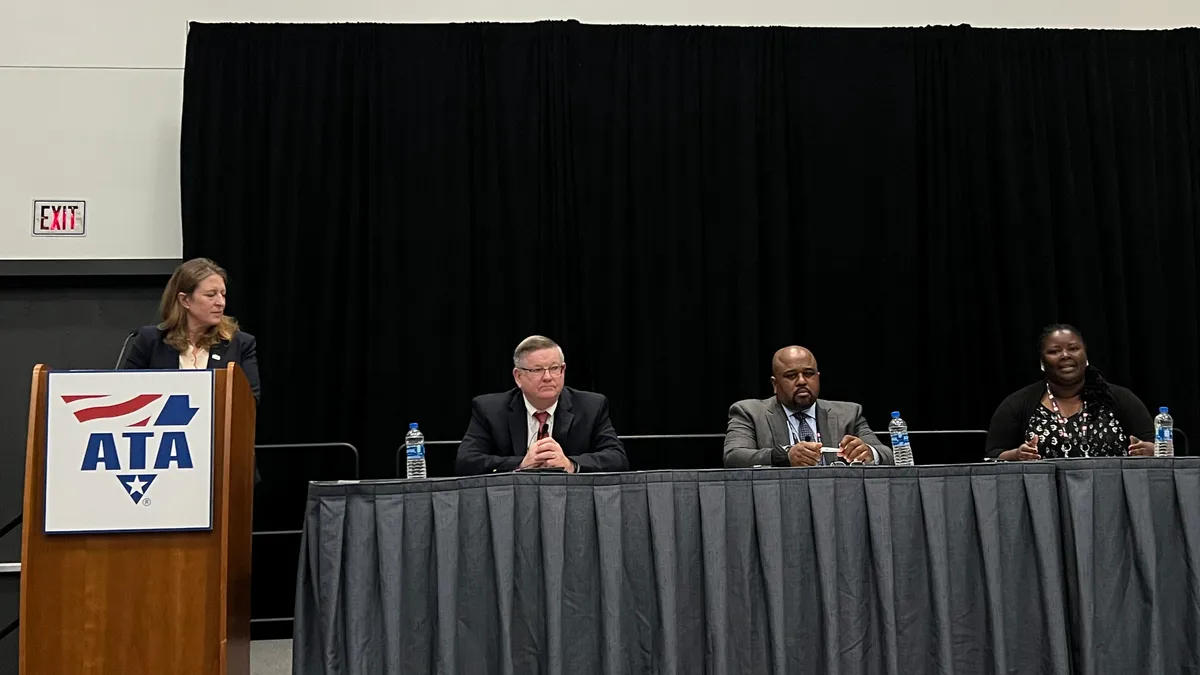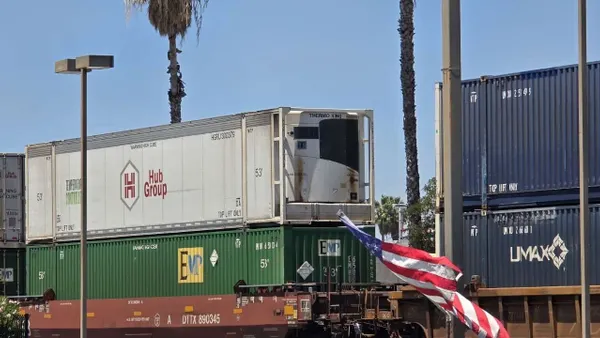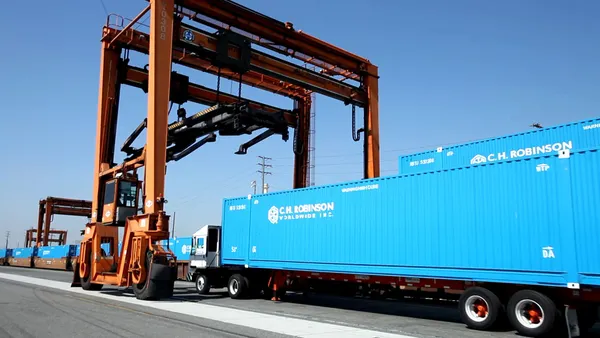Dive Brief:
- The FMCSA issued interim guidance Wednesday clarifying the definitions of broker and bona fide agent, as mandated by the infrastructure law to take into account the way technology has changed the roles.
- The agency clarified that handling money exchanged between shippers and motor carriers “strongly suggests the need for broker authority, but it is not an absolute requirement.” Bona fide agent determinations will be based on “whether the person or company is engaged in the allocation of traffic between motor carriers.”
- The interim guidance is effective immediately, but the FMCSA is also seeking public comments in response to the clarifications and could update the guidance “if comments demonstrate a need.”
Dive Insight:
Individuals, trade associations, brokers and dispatch services were among the more than 80 stakeholders who responded in the public docket to the FMCSA’s June request for comment on the definitions.
The prevailing view among respondents was that the current definition of broker is adequate, the FMCSA said. But they were more divided over whether handling funds in a transaction between shippers and motor carriers constitutes brokering.
“Some commenters believed that whether one handles funds is irrelevant to whether one is a broker,” the agency said. “A coalition of stakeholders believed the handling of money is not determinative in the broker determination. Other stakeholders felt that the handling of money had at least some relevance.”
Determinations of whether an entity is a bona fide agent will be highly fact-specific, the agency said. Stakeholders provided various definitions of bona fide agents — more than one saying they must represent a single carrier — but they generally considered them to be “individuals/entities that solicit business for a motor carrier,” the FMCSA said.
The FMCSA also clarified what constitutes a dispatch service. Such operations have common features, “First, they work exclusively for motor carriers, not for shippers. Second, they source loads for motor carriers. And third, they perform additional services for motor carriers that are unrelated to sourcing shipments.”
No single factor determines whether a dispatch service is engaged in brokering. But the extent of a motor carrier’s control over the operation and its workers “is highly significant,” the FMCSA said. “I.e. the dispatch service works on behalf of the motor carrier and makes decisions based on the motor carrier’s guidance and direction.”
A dispatch service that neither participates in the arranging of freight nor represents more than one motor carrier is not a broker, the FMCSA said.
“If a dispatch service arranges transportation on behalf of multiple motor carriers and engages in the allocation of traffic, however,” the agency said, “then pursuant to 49 CFR 371.2, it is not a bona fide agent and must obtain broker operating authority registration.”













